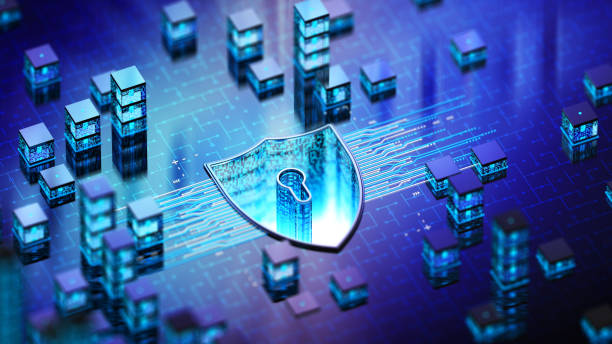In the present computerized world, online security is a steadily developing concern. The evolving threats of data breaches, ransomware, and corporate espionage highlight the growing sophistication of cyber risks. Traditional encryption, once the backbone of cybersecurity, is now vulnerable to the unprecedented computational power of quantum computing. Yet, could we at any point shield information from these quantum dangers? Enter quantum cryptography, an innovation that vows to change information security.
This article investigates quantum cryptography is really a definitive weapon against hacking or simply one more move toward the continuous weapons contest among cybercriminals and network protection specialists.
What Is Quantum Cryptography?
Quantum cryptography applies quantum mechanics to get correspondence. Quantum trap associates two particles so that changes to one right away influence the other, no matter what the distance between them. This property guarantees security by making any listening in endeavors perceivable through aggravations in the quantum state.
In cryptography, Quantum Key Dispersion (QKD) is the most outstanding application. QKD permits two gatherings to safely trade encryption keys over a shaky channel. The principal benefit of quantum cryptography is that any endeavor to capture the key changes its state, cautioning the gatherings required to the presence of a programmer. This makes quantum cryptography innately impervious to snooping, giving a degree of safety that conventional encryption techniques can’t coordinate.
How Does Quantum Cryptography Contrast from Conventional Encryption?
Traditional encryption methods, as RSA and AES, depend on numerical issues to get information, with security in view of the computational trouble of explicit errands, like prime factorization in RSA. Notwithstanding, these frameworks are defenseless against the force of quantum PCs. Quantum computers could potentially break widely used encryption methods. Algorithms like Shor’s can solve problems such as prime factorization exponentially faster than classical computers. If realized, quantum computers might decrypt current encryption protocols within hours, exposing sensitive data to cyber threats.
Interestingly, quantum cryptography offers a generally unique methodology. The vulnerability standard in quantum mechanics guarantees that any endeavor to notice a quantum framework changes its state, empowering encryption strategies that are both secure and fit for identifying listening in. Basically, quantum cryptography offers another worldview for secure information trade, even against the most impressive computational assaults.
The Qualities of Quantum Cryptography:
1. Tough Security (In Principle):
One of the essential selling points of quantum cryptography is its commitment to tough security. Conventional encryption relies on the assumption that breaking it would require impractical amounts of time or computational resources. Quantum cryptography, nonetheless, presents an encryption framework that can’t be broken without upsetting the actual framework, cautioning the gatherings required to penetrate. The no-cloning hypothesis in quantum mechanics guarantees that quantum information can’t be impeccably replicated, upgrading security by safeguarding data from unapproved duplication.
2. Identification of Snooping:
One of the center elements of quantum cryptography is the capacity to identify interference. In the event that a programmer attempts to catch or gauge the quantum key during transmission, the demonstration of estimation will change the quantum state, in this manner cautioning both the source and recipient that the correspondence has been compromised. This quantum no-cloning hypothesis guarantees that assailants can’t copy the quantum key without leaving follows, offering an extraordinary degree of safety.
3. Future-Sealing Against Quantum PCs:
As quantum PCs keep on advancing, they undermine the underpinnings of current encryption techniques. While quantum computers may break traditional encryption, quantum cryptography is designed to counter these threats. By taking on quantum-safe encryption today, associations can future-verify their information against the upcoming registering power.
Impediments of Quantum Cryptography:
1. Beginning phase Innovation:
Quantum cryptography is still in its early stages. While research and prototypes are advancing rapidly, large-scale and practical implementations of quantum cryptography remain limited. The ongoing frameworks face difficulties like distance limits for quantum correspondence (quantum trap is delicate and can corrupt over significant distances) and the significant expense of quantum equipment. Quantum cryptography is primarily confined to research laboratories and pilot commercial applications.
2. Weakness to Side-Channel Assaults:
Quantum cryptography isn’t invulnerable. It might in any case be defenseless against particular sorts of assaults, for example, side-channel assaults, where programmers exploit actual shortcomings in the quantum correspondence framework itself. These assaults could focus on the equipment execution, instead of the quantum calculation itself, presenting difficulties to engineers of quantum cryptographic frameworks.
3. Coordination Difficulties:
Regardless of whether quantum cryptography opens up, incorporating it into existing frameworks will be a stupendous test. Most associations would have to totally upgrade their ongoing security framework, which could be cost-restrictive. Furthermore, the progress from old style encryption to quantum encryption would require new conventions, preparation, and a change in the manner in which associations handle information security.
Is Quantum Cryptography A Definitive Weapon Against Hacking?
Quantum cryptography holds great promise for securing communications as quantum computers threaten even the strongest encryption systems. It offers a clever way to deal with security, depending on the standards of quantum mechanics instead of the constraints of computational power.
Nonetheless, whether quantum cryptography will turn into “a definitive weapon” against hacking stays dubious. Like any innovation, it’s anything but a silver projectile. While it gives unmatched security highlights, critical difficulties stay concerning adaptability, cost, and down to earth execution.
Furthermore, cybercriminals and programmers are developing, and new techniques for going after quantum cryptographic frameworks might arise. Just as current encryption algorithms were once considered robust but eventually compromised, quantum cryptography may also face future challenges. The weapons contest among assailants and safeguards will proceed, with quantum cryptography being only one part in this continuous fight.
Conclusion:
While quantum cryptography isn’t yet “a definitive weapon” against hacking, it addresses a critical progression in network protection. Quantum cryptography offers unmatched security beyond conventional methods, promising a future with significantly reduced data breaches and cyberattacks. However, its practical applications are still evolving, and widespread adoption requires further development.
Whether it will end up being the authoritative answer for all hacking provokes is not yet clear.








